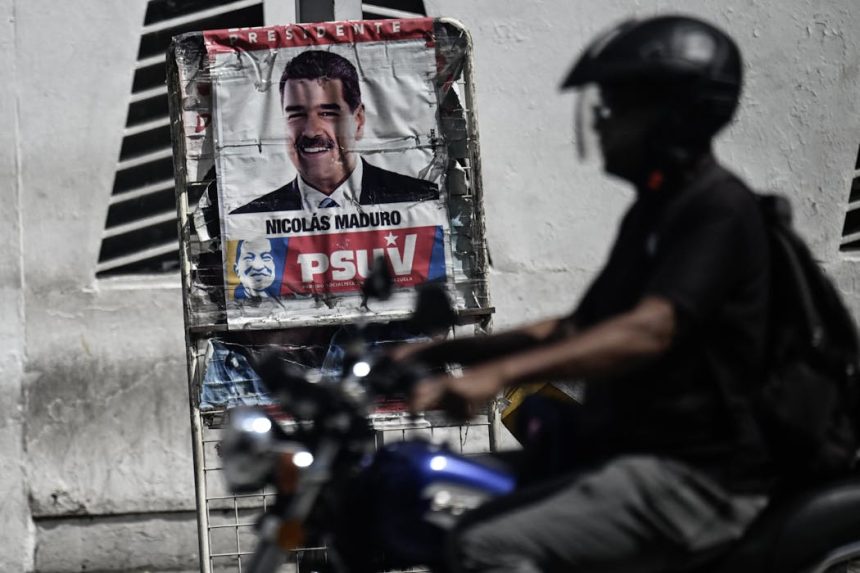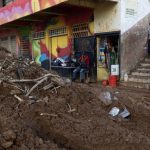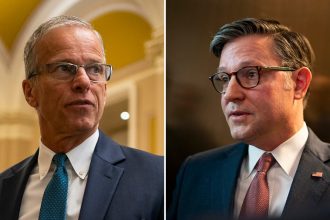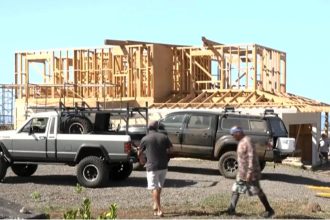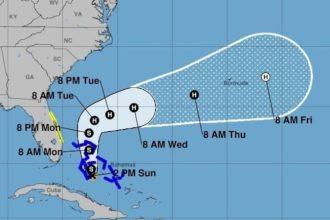The U.S. military buildup along South America’s northern rim is, Washington insists, aimed at “narco-terrorists.” A growing chorus of analysts aren’t convinced; they suspect what the Trump administration is really after is regime change in Venezuela.
Nicolás Maduro, the country’s leader since 2013, is taking no chances. In recent weeks he responded to the Trump administration’s moves as if invasion were imminent. After a September emergency decree and martial rhetoric about a “republic in arms,” the Venezuelan president says militias and reservists are now mobilized nationwide.
The leftist leader has ordered armed forces, police and militia to deploy across 284 battlefronts – a national defense posture that surges troops on sensitive borders. He has also massed 25,000 soldiers near Colombia, a likely vector for infiltration.
In addition, roughly 4.5 million members of the National Bolivarian Militia, an auxiliary force created in 2005 and made up of civilian volunteers and reservists, have reportedly mobilized. Civilians are being trained by the armed forces in weapons handling and tactics sessions to knit local “people’s defense” committees into the defense architecture.
This placing of Venezuela on a war footing follows months of U.S. military buildup in the Caribbean. And there is no doubt that should it come to it, the U.S. boasts a far larger and more sophisticated military than Venezuela.
But as an expert on Latin American politics, I suspect that might not be enough to remove Maduro from power – or encourage opposition figures in Venezuela on Washington’s behalf. In fact, any direct attempt to do so might only lead to a slow process that risks entrenching Maduro’s position.
Powerful friends overseas
Alongside nationwide domestic mobilization, the Venezuelan leader still has some pretty powerful international friends. Maduro boasts some 5,000 Russian Igla-S, man-portable anti-aircraft missiles positioned at key air-defense points. While unverified, these reports are indicative of the short-range air defense and anti-ship capabilities being supplied by nations friendly to the Maduro regime.
On Oct. 28, a Russian Il-76 heavy cargo plane, operated by a sanctioned carrier tied to Russian military logistics, landed in Caracas after a multistop route through the Caucasus and West Africa. If not an outright sign of solidarity, this is a signal that Russia can airlift advisers, parts and munitions at will.
Iran’s long, quiet hand is visible in Venezuela’s drone program. It was reportedly seeded with Mohajer-2 kits and expanded over the years into armed and surveillance platforms assembled at state plants by Tehran-trained technicians.
Cuba, for its part, has for more than a decade embedded intelligence and internal security advisers across Venezuela’s military services, an underdiscussed force multiplier that helps the regime police dissent and maintain loyalty.
Although Russia, Cuba and Iran may help Maduro survive, they are unlikely to save him from any determined American campaign.
Cautious opposition
If Washington is hoping that its military squeeze may encourage Venezuelans to take matters into their own hands, the domestic scene is less favorable. The opposition to Maduro is fragmented and vulnerable after being deprived, fraudulently by most accounts, victory in a 2024 vote and a subsequent year of repression.
The Democratic Unitary Platform remains split between a pressure wing and a participation wing after the disputed vote. The jolt of morale handed to the opposition on Oct. 10, when the de facto 2024 opposition candidate María Corina Machado won the Nobel Peace Prize, has yet to move the needle.
There is a low probability, in my opinion, that the opposition can forcibly remove Maduro without a trigger, such as a major split within the security services, sustained mass mobilization with elite defections, or a massive U.S. intervention.
The regime’s domestic security architecture and control of courts, prosecutors and the electoral council make a sudden elite split unlikely. Electoral displacement is also unpromising given that the official opposition is split on tactics, faces daily repression, and Maduro has repeatedly signaled he will not accept a loss – even if he loses.
Street power, backed by sustained international leverage and U.S. military threats, are arguably the opposition’s best asset.
Diaspora politics are febrile. South Florida’s large Venezuelan exile community reads the naval buildup as a potential turning point and lobbies accordingly, even as U.S. immigration and travel policies cut against their interests. The opposition’s mainstream leaders still mouth the catechism that change should come by Venezuelan hands, but more are openly courting external pressure to tilt the balance.

What Washington might do next
The Trump administration has certainly shown willingness to mount pressure on Maduro and encourage his opponents. Since August, the Pentagon has surged forces, destroyers and amphibious ships into the U.S. Southern Command’s patch. Then, on Oct. 24, Washington redirected the USS Gerald R. Ford carrier strike group to the Caribbean.
Meanwhile, attacks against suspected drug vessels will likely continue.
The campaign has already resulted in at least 13 strikes and 57 killed in the Caribbean Sea and eastern Pacific. And President Donald Trump has been consistent in linking the targeted cartels to Venezuela’s government and Maduro directly. Should the U.S. wish to escalate further, precision strikes on Venezuelan territory are not out of the question. With an aircraft carrier nearby and F-35s staged in Puerto Rico, the Pentagon has options.
Meanwhile, covert actions will accompany any overt military posturing. The White House has openly declared that the CIA has authority to operate inside Venezuela. A U.S. Homeland Security agent reportedly tried to recruit Maduro’s chief pilot to fly the president into U.S. custody, a plot that fizzled but hints at the psychological ops now in play. Venezuela, meanwhile, has condemned “military provocation” by the CIA and others.
It is worth recalling past attempts to unseat Maduro, including a 2018 drone attack at a Caracas parade and a failed freelance operation in 2020 that ended with deaths and dozens captured, including two former U.S. soldiers. The U.S. has denied any connection to both incidents.
In any event, such operations seldom topple strongmen – but they do seed paranoia and crackdowns as regimes chase ghosts.
Possible endgames
If Washington’s real objective is regime change, the plausible outcomes are sobering. To be sure, a quick collapse of Maduro’s government is unlikely. A short, sharp campaign that dismantles the regime’s coercive tools could trigger elite defection. Yet Cuba-hardened internal security, patronage over the generals and years of sanctions-induced siege mentality make a palace coup improbable on a timetable that suits Washington.
In my view, a slow squeeze is likelier.
A hybrid strategy involving maritime and air pressure, covert agitation and inducements, targeted strikes to degrade regime capacity, and political, legal and cyber warfare to isolate Caracas and split the officer corps is realistic. But that path risks entrenching the regime’s hard-liners and worsening a humanitarian crisis even as it degrades Maduro’s capacity.
Analysts warn that the regime change logic, once engaged, is hard to calibrate, especially if strikes kill civilians or hit national symbols.
A boomerang is always possible. Military action will very likely rally nationalist sentiment in Venezuela, fracture hemispheric consensus and drag the U.S. into a longer confrontation with messy spillovers, from uncontrolled migration to maritime security threats.

It is worth recalling that approximately 7.9 million migrants and refugees have already left Venezuela, with over 6.7 million residing in Latin American and Caribbean countries. Even the successful decapitation of Maduro’s regime would not guarantee a successor able to govern the country.
At least three signposts matter in determining what happens next.
The first is airlift cadence: More Russian cargo flights into Caracas point to accelerated military and technical aid. A second is the expansion of U.S. targets – a strike on a military installation or a presidential bunker would cross a political Rubicon, even if framed as a counter-narcotics operation. The third is opposition mobilization. If there are credible signs of Venezuelan demonstrations, protests and action, this will shape Washington’s appetite for escalation.
But even if the White House clings to its current counter-drugs and counterterrorism narrative, all evidence points to the trajectory as an incremental regime change push with less than certain outcomes.
This article is republished from The Conversation, a nonprofit, independent news organization bringing you facts and trustworthy analysis to help you make sense of our complex world. It was written by: Robert Muggah, Instituto Igarapé; Princeton University
Read more:
Robert Muggah is the co-founder of the Igarape Institute, a think and do tank in Brazil and a principal and co-founder of SecDev, a geopolitical and digital advisory group. Dr. Muggah is an affiliated scholar at Princeton University, a Richard von Weizsäcker Fellow at the Robert Bosh Academy, and received a DPhil from the University of Oxford.


